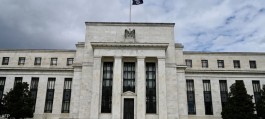Oil prices fell after a four-day winning streak, as traders assessed the OPEC+ alliance's decision to freeze production increases at the start of next year.
Brent crude for January delivery traded near $65 a barrel, while West Texas Intermediate crude settled below $61.
The OPEC+ alliance said over the weekend that it intends to refrain from raising production quotas in the first quarter of the year, following a limited increase planned for next month. This comes at a time when the market is anticipating a supply surplus.
First pause in increases since April
The decision marks the first time the alliance has halted the addition of new barrels since it began pumping supplies last April. The eight core members of the alliance still have approximately 1.2 million barrels per day of planned output to return to the market, according to some estimates.
The decision prompted Morgan Stanley to raise its forecast for Brent crude prices early next year, but at the same time warned that the supply glut would not be fully balanced before 2027.
Warnings of US sanctions against Russia
The global oil index has fallen by about 13% since the beginning of the year amid fears of a supply glut.
Claudio Descalzi, chief executive of Eni, said at a conference in Abu Dhabi on Monday that any concerns about oversupply would be temporary, becoming the latest industry leader to try to calm worries about weak demand.
At the same time, the heads of several major oil companies participating in the conference warned that the markets are not taking seriously enough the impact of the US restrictions imposed on Russian producers.
In a separate development, a large-scale Ukrainian drone attack in the Black Sea region crippled a major refinery belonging to Russia's Rosneft, adding a new element of uncertainty to the global supply landscape.






































